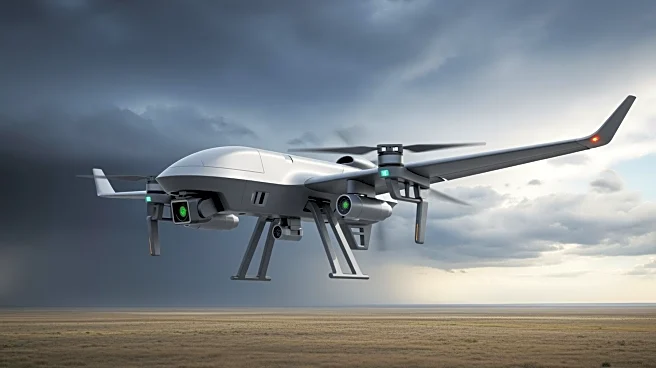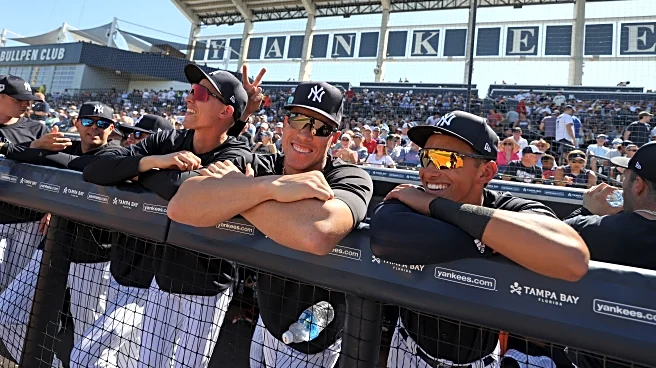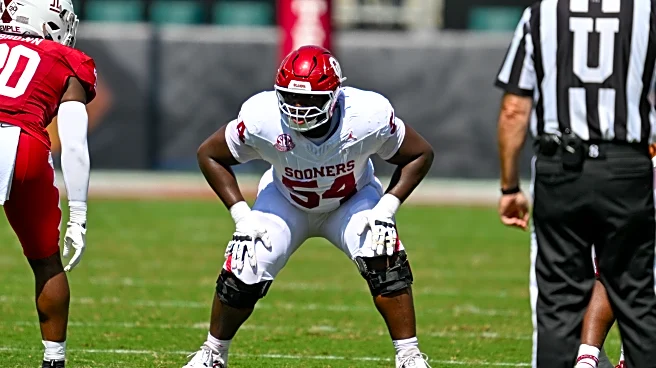What's Happening?
Lieutenant General Alexander Sollfrank, head of Germany's joint operations command, has issued a warning regarding Russia's capacity to launch a limited attack on NATO territory. According to Sollfrank, Russia's current
military capabilities could enable a small-scale, regionally limited assault at any time, despite its ongoing involvement in Ukraine. He emphasized that Russia's air force and nuclear capabilities remain strong, and its ground forces, though suffering losses, are being bolstered with plans to increase troop numbers to 1.5 million. Sollfrank also noted that Russia's recent drone incursions into Polish airspace have heightened concerns about potential escalation. The general's comments reflect broader NATO concerns about Russia's military intentions, especially as Russia continues to expand its armament efforts.
Why It's Important?
The warning from Lieutenant General Sollfrank highlights the ongoing tension between NATO and Russia, with potential implications for international security and defense strategies. If Russia were to initiate an attack, it could lead to significant geopolitical instability and necessitate a robust response from NATO allies. This situation underscores the importance of NATO's deterrence efforts and the need for member countries to enhance their military readiness. Germany's decision to increase defense spending and expand its armed forces is a direct response to these threats, aiming to strengthen NATO's collective security. The potential for Russian aggression also impacts U.S. foreign policy, as the country is a key NATO member and would be involved in any collective defense actions.
What's Next?
NATO is likely to continue monitoring Russia's military activities closely and may increase its defensive measures on the eastern flank. Member countries, including the U.S., may engage in diplomatic efforts to de-escalate tensions while preparing for potential military responses. Germany's planned increase in defense spending and troop numbers by 2029 indicates a long-term commitment to bolstering NATO's capabilities. Additionally, NATO may explore further technological advancements to counteract Russia's hybrid warfare tactics, such as drone incursions. The alliance's future actions will depend on Russia's military posture and the effectiveness of NATO's deterrence strategies.
Beyond the Headlines
The situation raises ethical and strategic questions about the balance between deterrence and provocation. NATO's military buildup could be perceived by Russia as a threat, potentially exacerbating tensions. The use of hybrid warfare tactics by Russia, including drone incursions, reflects a shift in modern warfare strategies, emphasizing non-linear and psychological elements. This development may lead to changes in international military doctrines and the way conflicts are approached, with an increased focus on cyber and drone warfare.










